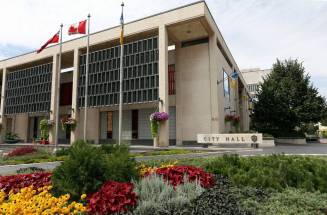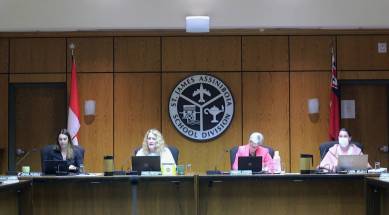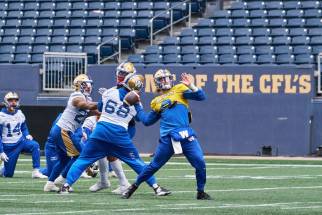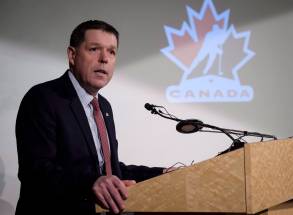‘Wake-up call’: city, union had no essential services agreement in place
Read this article for free:
or
Already have an account? Log in here »
To continue reading, please subscribe:
Monthly Digital Subscription
$0 for the first 4 weeks*
- Enjoy unlimited reading on winnipegfreepress.com
- Read the E-Edition, our digital replica newspaper
- Access News Break, our award-winning app
- Play interactive puzzles
*No charge for 4 weeks then price increases to the regular rate of $19.00 plus GST every four weeks. Offer available to new and qualified returning subscribers only. Cancel any time.
Monthly Digital Subscription
$4.75/week*
- Enjoy unlimited reading on winnipegfreepress.com
- Read the E-Edition, our digital replica newspaper
- Access News Break, our award-winning app
- Play interactive puzzles
*Billed as $19 plus GST every four weeks. Cancel any time.
To continue reading, please subscribe:
Add Free Press access to your Brandon Sun subscription for only an additional
$1 for the first 4 weeks*
*Your next subscription payment will increase by $1.00 and you will be charged $16.99 plus GST for four weeks. After four weeks, your payment will increase to $23.99 plus GST every four weeks.
Read unlimited articles for free today:
or
Already have an account? Log in here »
Hey there, time traveller!
This article was published 12/10/2022 (1151 days ago), so information in it may no longer be current.
Winnipeg’s top bureaucrat is taking aim at the union that represents 4,900 city workers — saying residents should be “shocked and outraged” — after the municipal government came within hours of a strike that could have put its critical services at risk.
Around 8 p.m. Tuesday, the city and Canadian Union of Public Employees Local 500 each publicly declared a tentative labour deal had been reached to prevent a strike set to begin at midnight Wednesday.
On the same day, multiple sources reached out to the Free Press to warn the absence of City of Winnipeg employees could increase the risk of sewage spills, boil water advisories and delays in answering emergency calls.
Water and waste staff, as well as 911 operators, were included in the potential job action. Also on the list were pools, libraries, 311 and public works employees and other departments.
However, the city and its largest union had failed to agree to an essential services agreement before the strike deadline — a deal that would ensure workers providing the most critical services stayed on the job.
MIKE DEAL / FREE PRESS FILES Winnipeg chief administrative officer Michael Jack placed the blame on the union.
Winnipeg chief administrative officer Michael Jack placed the blame on the union.
“Winnipeggers should be surprised that (an essential services agreement) isn’t in place… It’s something the city has pressed for previously and CUPE has never been prepared to agree to it… So people should be, frankly, shocked and outraged that CUPE is not prepared to include that,” Jack said Wednesday.
The city sent a proposed essential services agreement to CUPE in July, specific to this round of bargaining, but the union refused to sign it, the CAO said.
In September, city officials proposed a new framework to protect essential services in the event of labour action, which was also rejected, Jack said.
That proposal would have guaranteed an essential services agreement was in place before any strike action or lockout could occur. If a deal wasn’t reached seven days before a planned job action, the matter would go before an expedited arbitration process to settle it before any labour disruption.
Such a deal would also prevent the city from seeking alternate workers to fill in for non-essential staff who were on strike, Jack said.
“It gives everyone certainty going into any labour disruption that the most critical services will still be provided, that people will have safe water to drink, that people will still be answering 911 calls… We were hoping this was a no-brainer.”
Jack confirmed provincial legislation already prevents Winnipeg police officers and firefighters from going on strike, with their labour disputes sent to arbitration when a deal can’t be reached at the bargaining table.
“Absolutely — we agreed to negotiate the terms of an essential services agreement at each and every round of bargaining.”–Gord Delbridge
The risks linked to this week’s labour action will trigger further discussions with CUPE, Jack said, adding he will also consider asking city council to request new provincial legislation that prevents key workers going on strike.
“I think that is likely a bit of a wake-up call,” he said.
The head of CUPE Local 500 countered the union is eager to ensure essential services are protected.
“Absolutely — we agreed to negotiate the terms of an essential services agreement at each and every round of bargaining,” president Gord Delbridge said Wednesday.
MIKAELA MACKENZIE / FREE PRESS FILES Gord Delbridge said there is value in setting a new essential services agreement for each round of collective bargaining because jobs can change over the years.
Delbridge said there is value in setting a new essential services agreement for each round of collective bargaining because jobs can change over the years, with some added or deleted, and flooding or other natural disasters can ramp up the immediate need for specific employees.
The process is much more complicated than simply declaring 911 and water and waste employees “essential,” the union leader said, noting some snow-clearing crews should likely also fall into that category.
The terms offered in the city’s essential services proposal were way too broad, including hundreds of jobs CUPE felt shouldn’t be excluded from a strike, Delbridge said.
“Often, they’ll come to us and think that the grass-cutting (staff) and mechanics need to be deemed essential.”
“Often, they’ll come to us and think that the grass-cutting (staff) and mechanics need to be deemed essential.”–Gord Delbridge
Jack denied the city suggested overly broad categories, saying the union did not offer “meaningful” suggestions on which positions should be removed.
Coun. Sherri Rollins, chairwoman of the protection and community services committee, said she was surprised a strike came so close to taking place without an agreement on which workers would be deemed essential.
MIKE DEAL / WINNIPEG FREE PRESS Coun. Sherri Rollins said she was surprised a strike came so close to taking place without an agreement on which workers would be deemed essential.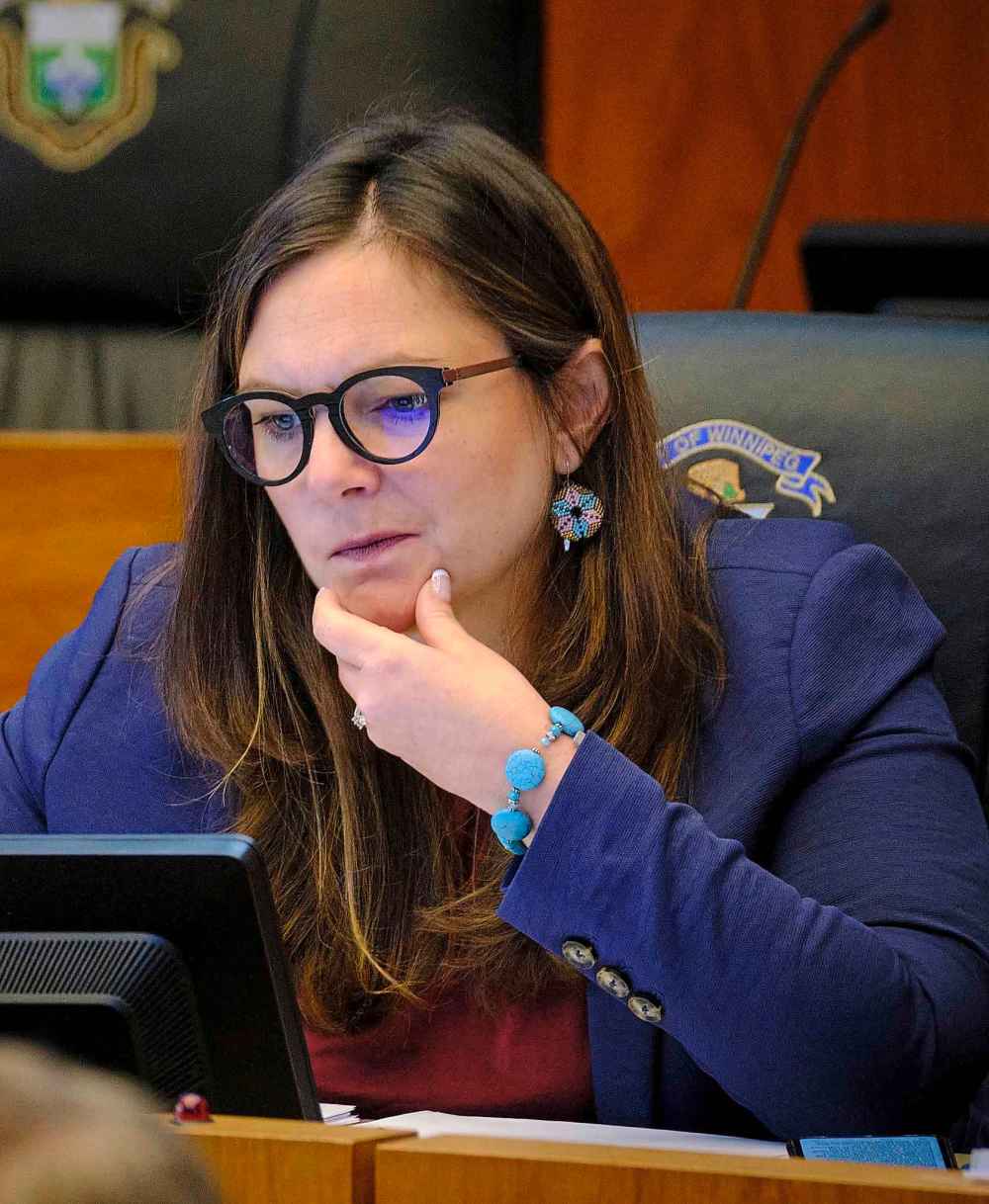
“Weighing heavily on me the whole time is that we didn’t have an essential services agreement. For sure, (this) is surprising,” said Rollins.
Coun. Brian Mayes, a non-practising labour lawyer, said better protecting city services while respecting workers’ rights must be a top priority moving forward.
“We need clean drinking water, we need a functioning sewage system. Those are essential services… It’s important work, it’s just never been hammered out here,” said Mayes. “(On the other hand), the employer should say: we’re not going to bring in school bus loads full of replacement workers to do all of (the union) jobs.”
One labour expert said the lack of an agreement on workers deemed too critical to strike could be a sign of especially difficult negotiations.
“It sort of surprises me that they wouldn’t have reached an essential services agreement by the time they were this close to a strike deadline… A question that raises in my mind is, is that evidence of an acrimonious set of negotiations?” said David Camfield, an associate professor of labour studies and sociology at the University of Manitoba.
“A question that raises in my mind is, is that evidence of an acrimonious set of negotiations?”–David Camfield
Determining which staff are essential isn’t easy, he added. “Basically, there’s no objective way of defining who is essential or not… So it’s always political, it’s always contested.”
Camfield noted there are also significant legal implications for removing the right to strike on a more permanent basis, such as through provincial legislation.
“Essentially rulings by the Supreme Court have extended some legal protection to the right to strike, so if you’re going to take it away there has to be a high bar and there has to be an alternative method of resolving the dispute.”
Both the city and union declined to reveal details of the tentative deal, which CUPE members and council are expected to vote on within the next few weeks.
joyanne.pursaga@freepress.mb.ca
Twitter: @joyanne_pursaga

Born and raised in Winnipeg, Joyanne loves to tell the stories of this city, especially when politics is involved. Joyanne became the city hall reporter for the Winnipeg Free Press in early 2020.
Our newsroom depends on a growing audience of readers to power our journalism. If you are not a paid reader, please consider becoming a subscriber.
Our newsroom depends on its audience of readers to power our journalism. Thank you for your support.
History
Updated on Wednesday, October 12, 2022 9:25 PM CDT: Fixes typos









